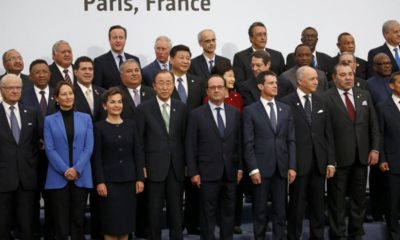Government
COP27: Double Standard as 400 Private Jets Landed in Egypt For Climate Conference
Egypt witnessed huge air traffic of hundreds of private jets which will produce emissions, advocate groups and social media commentators have condemned the act, calling it “hypocrisy and double standard”.

Government
Netanyahu Stands Firm as US Halts Bomb Shipment Over Rafah Invasion Warning
Government
EFCC Declares Former Kogi Governor, Yahaya Bello, Wanted Over N80.2 Billion Money Laundering Allegations
Government
Concerns Mount Over Security as National Identity Card Issuance Shifts to Banks
-



 Naira3 weeks ago
Naira3 weeks agoDollar to Naira Black Market Today, April 24th, 2024
-



 News4 weeks ago
News4 weeks agoARISE News Channel Goes Global: Launches in Nine Southern African Countries
-



 Naira4 weeks ago
Naira4 weeks agoDollar to Naira Black Market Today, April 22nd, 2024
-



 Travel3 weeks ago
Travel3 weeks agoSaudi Arabia Breaks 70-Year Alcohol Ban, Opening Shop for Diplomats
-

 Naira3 weeks ago
Naira3 weeks agoDollar to Naira Black Market Today, April 25th, 2024
-



 Jobs3 weeks ago
Jobs3 weeks agoJob Cuts Hit Tesla: More Than 6,000 Positions Axed Across Texas and California
-

 Naira3 weeks ago
Naira3 weeks agoDollar to Naira Black Market Today, April 30th, 2024
-

 Investment4 weeks ago
Investment4 weeks agoMinister Accuses Past NCDMB Leadership of Squandering $500m on Unproductive Projects


















